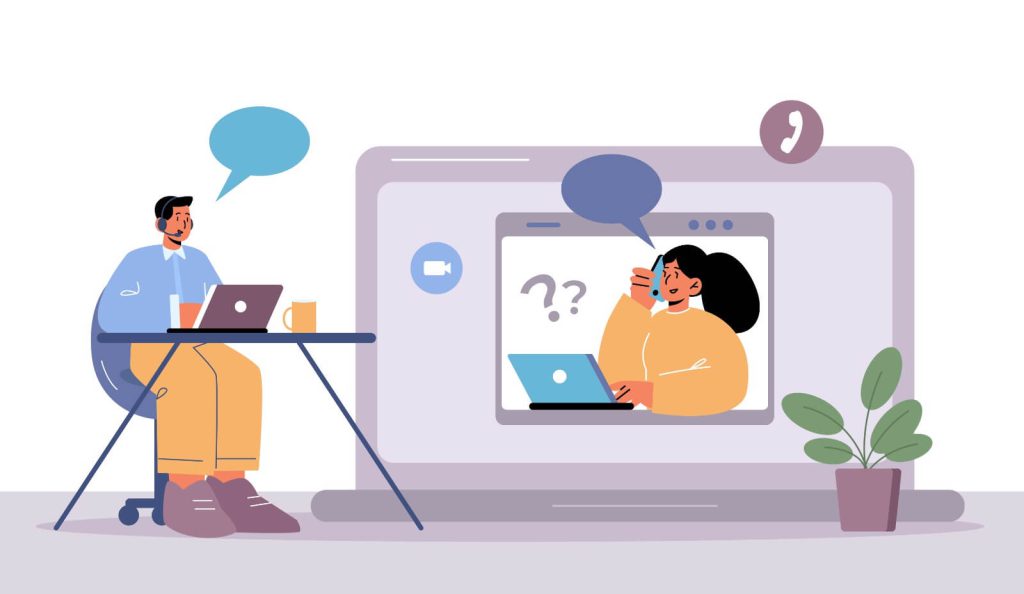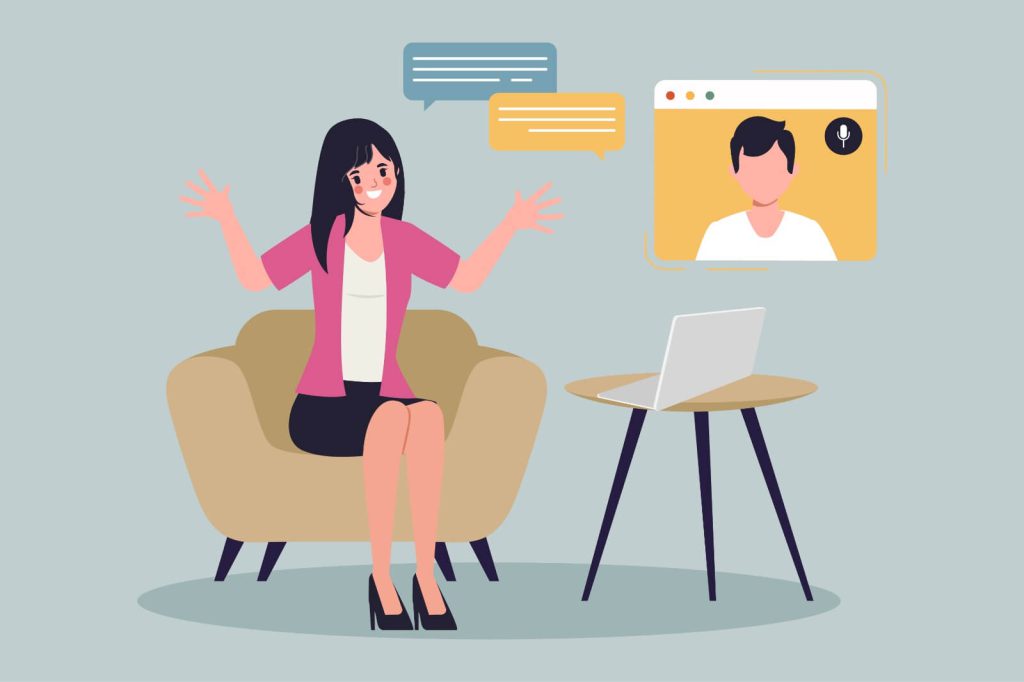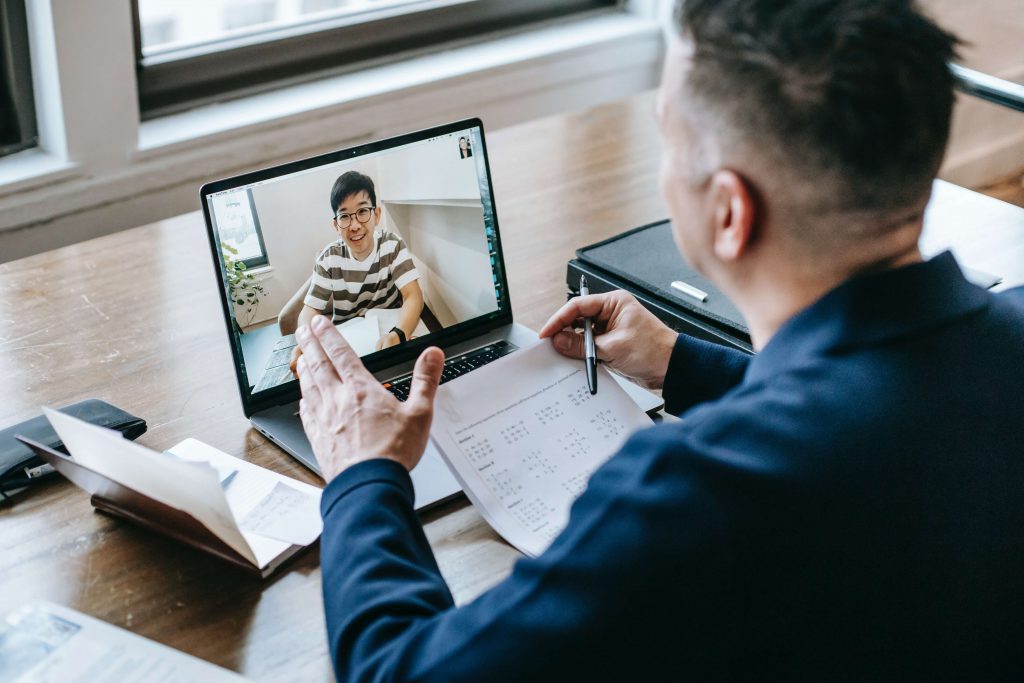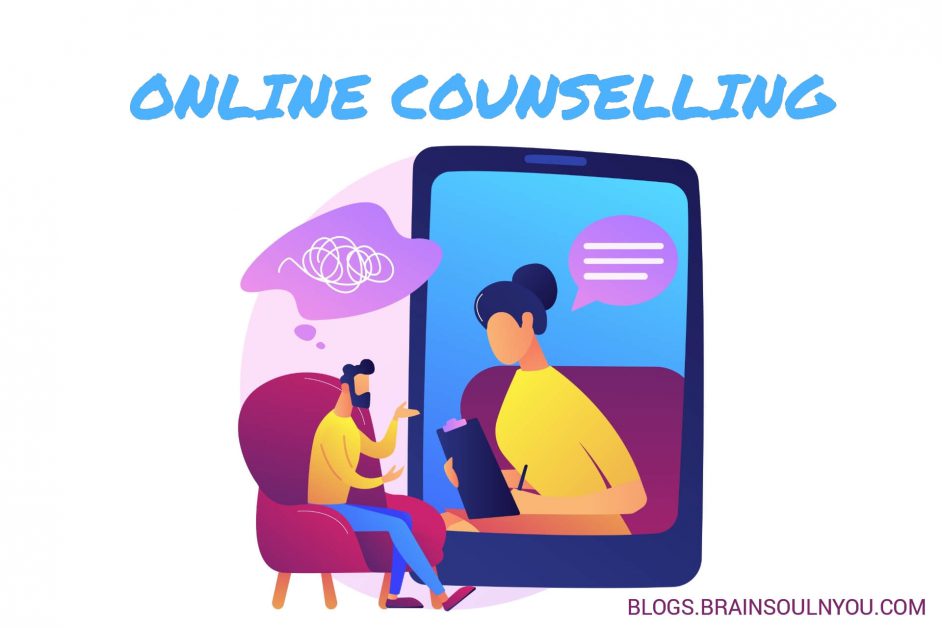Online counselling, also known as teletherapy or e-counseling, refers to the provision of counseling services through digital platforms such as video calls, phone calls, instant messaging, or email. It offers individuals the opportunity to receive professional counseling support remotely, using technology to bridge the distance between clients and counselors.
Many people face many problems in their life. Whether he is a kid, parent, any individual, or any senior citizen. They have problems like career decisions for kids, relationship issues, grief, phobias, mental health problems, depression, anxiety, and many other problems. They required counseling but do not find any good counselor or some feel hesitant. So online counseling is the best option for all.
What is Counselling?
Counseling, also known as therapy or psychotherapy, is a professional relationship between a trained counselor or therapist and an individual or group seeking support, guidance, and assistance with various personal, emotional, psychological, or behavioral concerns. The primary goal of counseling is to help clients explore their feelings, thoughts, and experiences, gain insights, develop coping strategies, and work towards positive change and personal growth.

Counseling provides a safe and confidential space for individuals to express themselves openly, without fear of judgment. It offers an opportunity to discuss and explore concerns, challenges, and life difficulties with a trained professional who can provide guidance, support, and expertise.
Key Aspects of Counseling
Therapeutic Relationship: The counselor-client relationship forms the foundation of counseling. It is built on trust, respect, empathy, and confidentiality. The counselor provides a non-judgmental and supportive environment where clients feel comfortable sharing their thoughts and feelings.
Emotional Support: The counselor listens attentively, validates the client’s emotions, and provides empathy and understanding.
Problem Exploration and Insight: Counseling helps clients explore and gain insights into their concerns, thoughts, feelings, and patterns of behavior. Through active listening, reflection, and questioning, the counselor helps clients uncover underlying issues, identify unhealthy patterns, and gain a deeper understanding of themselves.
Coping Strategies and Skill Development: Counseling assists individuals in developing effective coping strategies and problem-solving skills. The counselor may teach techniques to manage stress, improve communication, regulate emotions, build resilience, or change unhelpful thoughts and behaviors.
Goal Setting and Personal Growth: Counseling supports clients in setting goals for personal growth and positive change. The counselor collaborates with clients to identify their aspirations, values, and desired outcomes, and helps them develop a plan to work towards these goals.
Tailored Approaches: Counseling incorporates various therapeutic approaches and techniques based on the client’s needs and preferences. These may include cognitive-behavioral therapy (CBT), psychodynamic therapy, humanistic therapy, family systems therapy, or other evidence-based modalities.
Confidentiality: Confidentiality is a crucial aspect of counseling. Counselors are bound by ethical guidelines to maintain client confidentiality, except in situations where there is a risk of harm to the client or others. This ensures a safe and trusting environment for clients to share their concerns.
It is important to note that counseling is not limited to addressing mental health disorders but is also valuable for personal growth and self-exploration.
Choosing a counselor who is qualified, experienced, and a good fit for your needs is crucial. They can provide guidance, support, and tools to help you navigate life’s challenges, enhance your well-being, and achieve your personal goals.
Why People Hesitate for Counselling?
There are several reasons why people may hesitate or feel reluctant to seek counseling. Some common factors include:
Stigma: There is still a societal stigma surrounding mental health and seeking help for emotional or psychological struggles. Some individuals may fear judgment or discrimination if they are perceived as “weak” or “crazy” for seeking counseling. This stigma can lead to feelings of shame or embarrassment, preventing people from reaching out for support.
Lack of Awareness or Understanding: Some individuals may not fully understand what counseling entails or may have misconceptions about the process. They may hold beliefs that counseling is only for those with severe mental illness or that it is ineffective. Lack of awareness or understanding about the benefits of counseling can contribute to hesitation.
Self-Reliance or Independence: People who value self-reliance or pride themselves on being independent may struggle with the idea of seeking help from others, including mental health professionals. They may feel that seeking counseling is a sign of weakness or an admission of failure in managing their own problems.
Fear of Opening up and Vulnerability: Opening up to a stranger and discussing personal issues can be daunting for some individuals. They may fear being judged, misunderstood, or not being able to articulate their feelings adequately. The prospect of being vulnerable and sharing intimate details can be anxiety-provoking and uncomfortable.

Cultural or Religious Factors: Cultural or religious beliefs and values can influence attitudes toward seeking counseling. Some cultures may view mental health concerns as a taboo subject or discourage seeking professional help for emotional difficulties. Cultural or religious norms that prioritize self-sacrifice or stoicism can also contribute to hesitation in seeking counseling.
Financial Concerns: Cost can be a significant barrier to accessing counseling services. Some individuals may worry about the affordability of sessions, especially if they don’t have insurance coverage or if mental health services are not readily available or accessible in their area.
Past Negative Experiences: Previous negative experiences with counseling or therapy, such as feeling misunderstood, invalidated, or having a poor rapport with a counselor, can lead to hesitancy in seeking further support. These experiences may create a reluctance to try counseling again.
Denial or Minimization: Some individuals may deny or downplay the severity of their emotional or psychological struggles. They may convince themselves that they can handle the challenges on their own or that seeking counseling is unnecessary.
Addressing hesitations and barriers to counseling often involves education, open dialogue, and creating a supportive environment. It’s important to promote mental health awareness, challenge stigma, and provide information about the benefits of counseling. Encouraging open conversations about emotions and mental well-being can help normalize seeking help and reduce hesitation. Additionally, improving accessibility to affordable counseling services and culturally sensitive approaches can help overcome barriers and make counseling more accessible to those in need.
Why Counselling is Important?
Counseling is important for several reasons, as it provides numerous benefits and support for individuals facing various challenges in their lives. Here are some key reasons why counseling is important:
Emotional Support: Counseling offers a safe and confidential space where individuals can express their thoughts, feelings, and concerns without fear of judgment. It provides a supportive environment where clients can feel heard, validated, and understood. This emotional support can be particularly helpful during times of stress, grief, trauma, or significant life changes.
Insight and Self-Understanding: Counseling helps individuals gain insights into their thoughts, emotions, behaviors, and patterns of relating to others. It can assist in developing a deeper understanding of oneself, including strengths, values, and areas for growth. This increased self-awareness can lead to personal growth, improved decision-making, and more fulfilling relationships.
Coping Strategies and Skill Development: Counseling equips individuals with coping strategies and skills to effectively manage challenges and enhance well-being. Counselors can teach techniques for stress reduction, emotion regulation, communication, problem-solving, and resilience. These skills empower individuals to navigate life’s difficulties and make positive changes.
Healthy Relationships: Counseling can help individuals improve their interpersonal skills, communication styles, and conflict resolution abilities. It provides an opportunity to explore relationship dynamics and learn healthier ways of relating to others. Counseling can be beneficial for individuals in romantic relationships, families, or work environments.

Mental Health and Well-being: Counseling plays a vital role in promoting mental health and well-being. It can help individuals manage and alleviate symptoms of mental health conditions such as anxiety, depression, trauma-related disorders, and more. Counseling can provide tools to improve self-esteem, build resilience, and cultivate a positive mindset.
Problem Solving and Goal Achievement: Counseling supports individuals in identifying and setting achievable goals for personal growth and positive change. Counselors can assist in problem-solving, exploring alternative perspectives, and developing action plans. This can help individuals overcome obstacles, make informed decisions, and work towards their desired outcomes.
Crisis Intervention and Trauma Recovery: Counseling is essential in times of crisis, trauma, or major life transitions. It provides a space for individuals to process their experiences, gain support, and develop strategies for healing and recovery. Counseling can assist individuals in navigating the emotional aftermath of traumatic events and finding resilience and strength.
Non-Biased Professional Perspective: Counseling provides an unbiased and non-judgmental perspective from a trained professional. Counselors are trained to listen actively, provide guidance, and offer expertise in understanding human behavior and emotions. They can help individuals gain new insights and provide alternative viewpoints to assist in problem-solving and decision-making processes.
Overall, counseling is important because it offers support, guidance, and tools to help individuals navigate life’s challenges, improve their well-being, and achieve personal growth. It provides an opportunity to develop resilience, gain self-understanding, and enhance overall mental health and satisfaction in life.
Benefits of Online Counselling
Online counseling, also known as e-counseling or teletherapy, offers several benefits that make it an appealing option for individuals seeking counseling support. Here are some key benefits of online counseling:
1. Accessibility: Online counseling provides increased accessibility to counseling services, especially for individuals who may have limited access to in-person counseling due to geographical constraints, living in remote areas, or lacking transportation options. It allows individuals to connect with qualified counselors regardless of their physical location, as long as they have access to a reliable internet connection.
2. Convenience and Flexibility: Online counseling offers convenience and flexibility in scheduling appointments. This flexibility can be particularly beneficial for those with busy schedules, work commitments, childcare responsibilities, or mobility challenges.
3. Anonymity and Privacy: Online counseling can provide a sense of anonymity and privacy, which may be appealing to individuals who are hesitant about seeking counseling or discussing sensitive topics face-to-face. Communicating with a counselor remotely can reduce self-consciousness and create a safe space for individuals to open up about their concerns.
4. Comfort and Familiarity: Engaging in counseling from one’s familiar environment can help individuals feel more at ease and comfortable during sessions. Being in a comfortable setting may facilitate better self-expression and openness, leading to more productive therapeutic outcomes.

5. Expanded Choice of Counselors: Online counseling allows individuals to choose from a broader pool of counselors or therapists. They are not limited to professionals within their immediate geographic area but can access counselors with specific expertise or specializations that may not be available locally. This expanded choice empowers individuals to find the best match for their needs and preferences.
6. Variety of Communication Options: Online counseling platforms offer various communication options such as video calls, phone calls, instant messaging, or email. Clients can choose the method that suits their preferences and comfort level. Some individuals may find it easier to express themselves in writing, while others may prefer face-to-face video sessions. This flexibility ensures that individuals can engage in counseling in a way that feels most comfortable for them.
7. Continuity of Care: Online counseling can facilitate continuity of care for individuals who have an established therapeutic relationship with a counselor but are unable to attend in-person sessions temporarily due to travel, relocation, or other circumstances. It allows clients to maintain their progress and continue their therapy without interruption.
8. Cost Savings: Online counseling can be more cost-effective compared to in-person counseling. It eliminates travel expenses and reduces the need for office space, allowing some counselors to offer more affordable rates or sliding-scale fees for their services.
Overall, online counseling offers convenience, accessibility, privacy, and choice, making it a valuable option for individuals seeking counseling support.
Different Counselling Sessions
Counseling sessions can vary in format and duration based on the needs of the client and the counseling approach used. Here are some common types of counseling sessions:
Individual Counseling: This type of counseling involves one-on-one sessions between a counselor and an individual client. It provides a private and confidential space for clients to explore their thoughts, emotions, and concerns. Individual counseling allows for personalized attention and tailored interventions specific to the individual’s needs.
Couples Counseling: Couples counseling, also known as relationship or marriage counseling, involves sessions with both partners in a committed relationship. The counselor helps the couple address conflicts, improve communication, and strengthen their relationship. Couples counseling aims to enhance understanding, resolve issues, and build a healthier and more satisfying partnership.
Family Counseling: Family counseling involves sessions with multiple family members, including parents, children, siblings, or other relatives. It focuses on improving communication, resolving conflicts, and strengthening family dynamics. Family counseling aims to enhance relationships, promote understanding, and create a supportive family environment.
Group Counseling: Group counseling involves a counselor leading a session with a small group of individuals who share similar concerns or goals. Group members interact and support each other, providing a sense of belonging and shared experiences. Group counseling can address various issues, such as substance abuse, grief, stress management, or specific populations like adolescents or veterans.
Online Counseling: Online counseling sessions utilize digital platforms for remote communication between the counselor and the client. These sessions can occur through video calls, phone calls, instant messaging, or email. Online counseling offers flexibility and accessibility for individuals who cannot attend in-person sessions due to various reasons.
Brief or Short-Term Counseling: Brief or short-term counseling focuses on addressing specific issues or goals within a limited number of sessions. It is typically solution-focused and aimed at providing immediate support, symptom relief, or coping strategies. Brief counseling can be effective for addressing specific challenges or during times of crisis.
Long-Term Counseling: Long-term counseling involves an extended duration of sessions that may continue for months or even years. It is suitable for clients who require ongoing support, exploration of deeper issues, or a more comprehensive therapeutic process. Long-term counseling allows for in-depth exploration and sustainable change over an extended period.
Different Fields for Counselling
Relationship counselling
Relationship counselling is basically for couples whether they are married or not. Couple counselling and marriage counselling are part of this. Couples generally have some issues in their relationship, so to resolve these problems they need a counsellor. A counsellor can help them for a smooth relationship.

Career Counselling
This is for students and youngsters those are in confusion about their career. Career counsellors help them to choose which career is best for them. There are many tests to choose a career also available. We also do a psychometric test that helps students to know about their brain programming and their interest field. To know more about the test and career counseling contact Brain Soul & You.

Counselling for Depression
Depression is the biggest cause of suicide in the world. About 8 lakhs of people suicide due to depression every year. There are many reasons for depression like some loss in business or loss of any person. Break-up issues also can be the cause of depression. Students have depression in their studies, and in their careers. The only cure for depression is Counselling.

Counselling for Grief
When a person loses someone or loss something without him he can not live, he comes into grief. People don’t know how to come out of this situation. If he does not resolve that problem, it becomes his habit. It also causes depression. Before it becomes a big problem for you better counsel with a counselor.

Counselling for Mental Diseases
Some mental diseases like Anxiety disorders, Behavioural and emotional disorders in children, Bipolar affective disorder, Depression, Dissociation and dissociative disorders, Eating disorders, Obsessive-Compulsive Disorder(OCD), Schizophrenia etc. Most people do not identify which mental disease they have. Actually, these are states of mind. If your state of mind changes these problems also change. For that, you need an NLP counsellor.

Personal Counselling
If you don’t know what you are facing but you realize there is something that is troubling you and you see your future dark then take a personal session of counselling. That will help you to come out of such a situation.
Counselling for Health
If you are feeling any health issue that the doctor can not diagnose so it will be better for you to consult with a counsellor. He can help you to diagnose your problem mentally.
Spiritual Counselling Session
Spirituality should be a part of your lifestyle. But in the modern world, we ignored it completely. That’s the main reason for mental stress and anxiety. If you want peace in your life and want to explore the inner world make spirituality part of your life. For that, you should talk to spiritual gurus or a spiritual counsellor.

Counselling for Corporate
Corporate counselling is basically for the employees and for the HR department. That helps HR department to find the right person for the right field. Sometimes happen that we choose a person that not made for that field. So, to more productivity, placemnet of employees must be right. Counselling of employees helps in sales and productivity of the company.
Counselling for Healing
As you go to the doctor to heal your wound what is the wound inside you. A pain that you feel during heartbreak, due to the loss of someone, or because of a Bad past. The normal doctor does not have any medicine for that wound. To heal your mental wounds you need a healer. A counsellor can help you to heal your inner pain, and can help you to delete your bad past.
Different Types of Counsellors
There are various types of counselors who specialize in different areas and work with specific populations. Here are some different types of counselors:
Mental Health Counselors: Mental health counselors, also known as clinical counselors or therapists, are trained to assess and treat individuals with mental health concerns. They often work with clients dealing with issues such as anxiety, depression, trauma, relationship problems, or stress management.
Marriage and Family Therapists: Marriage and family therapists specialize in working with couples and families to address relationship issues, communication problems, conflicts, and family dynamics. They help clients improve their relationships, resolve conflicts, and enhance overall family functioning.
School Counselors: School counselors work in educational settings, such as elementary, middle, and high schools, to support the academic, social, and emotional well-being of students. They assist students with career development, academic planning, personal concerns, and provide guidance for overall student success.
Substance Abuse Counselors: Substance abuse counselors specialize in assisting individuals struggling with substance use disorders. They provide counseling and support to help clients overcome addiction, develop relapse prevention strategies, and promote recovery.
Career Counselors: Career counselors assist individuals in exploring and making informed decisions about their career paths. They help clients identify their interests, strengths, and goals, and provide guidance on career exploration, job search strategies, and professional development.
Rehabilitation Counselors: Rehabilitation counselors work with individuals with disabilities to help them lead independent and fulfilling lives. They assist clients in overcoming barriers, developing coping skills, accessing resources, and achieving vocational and personal goals.
Geriatric Counselors: Geriatric counselors specialize in working with older adults and address the unique challenges associated with aging. They help older adults cope with physical and cognitive changes, manage life transitions, navigate caregiving, and promote overall well-being.
Child and Adolescent Counselors: Child and adolescent counselors work with children and teenagers to address a range of emotional, behavioral, and developmental issues. They provide support for issues such as anxiety, depression, ADHD, school-related problems, family conflicts, and social difficulties.
Grief Counselors: Grief counselors specialize in supporting individuals who are experiencing grief and loss. They provide guidance and assistance in navigating the grieving process and help clients cope with the emotional and practical challenges associated with loss.l
Contact Brain Soul & You for an online counselling session.
Read more blogs on Find a Life Coach, Psychometric Test, and NLP
Love,
Saurabh Goel
Saurabh Goel
He is the Founder and CEO of the Training and Counselling Company ‘Brain Soul & You’. He is an NLP Wellness Coach, Life Coach, Brain analyst, and Trainer for Education, Corporate, and Entrepreneurship. For more than 7 years, he delivered presentations on entrepreneurship, mind programming, and motivation. He did his B.tech in IT and later choose to be a successful psychologist. He is helping people in various ways through his counseling and training sessions.



1 thought on “8 Benefits of Online Counselling”